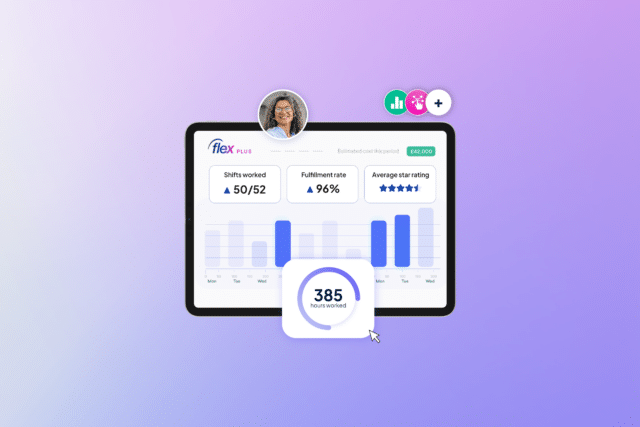
Companies worldwide are gradually realizing the value of employee feedback in improving performance. It’s an essential tool that can help your organization encourage a culture of growth and development, ultimately leading to improved outcomes.
In fact, Gallup found that 80% of employees who received quick feedback felt engaged at work. In contrast, a survey by AllVoices revealed that 41% of employees have resigned because they felt unheard. This clearly shows the impact of feedback on employee motivation and retention.
Why is employee feedback important?
Employee reviews play an important role in creating a positive work environment. You can provide an inclusive workplace that fosters a sense of belonging by giving employees a platform to share their thoughts, concerns, and ideas. This can raise job satisfaction and motivation, ultimately improving employee performance.
Moreover, evaluations allow your company to identify any issues or concerns that may be hindering productivity. By addressing these issues promptly, you can prevent potential problems and create a more efficient workplace. With employee insights, you can identify areas for improvement and make necessary changes to boost your company’s overall performance.
The role of managers in gathering and implementing feedback
Managers play an essential role in the employee feedback process. They must actively seek and encourage employee reviews, listen attentively, and take appropriate action.
According to Workleap, 96% of surveyed employees view receiving critiques as beneficial, and 83% desire regular evaluations from their managers, whether positive or negative. This highlights the importance of managers in creating a culture of open communication within organizations.
Constructive feedback can build trust and foster a healthy work environment. Managers can promote continuous improvement by listening and acting on employee suggestions.
Additionally, upper management must also support and empower supervisors to act on feedback, ensuring that necessary changes are made at all levels of the organization. With the proper support and commitment from managers, you can effectively gather and implement employee reviews for improved performance.
How to gather feedback from employees
To truly reap the benefits of worker feedback, your organization must ensure the process is accurate and effective. Here are some tips for gathering quality reviews from employees:
- Use a combination of methods: Instead of relying on just one method, use a mix of personal interviews, anonymous surveys, and focus groups to gather diverse perspectives.
- Encourage honesty and openness: Employees should feel comfortable expressing their opinions without fear of repercussions. Your organization can achieve this by assuring confidentiality and clearly communicating the purpose of gathering specific information.
- Provide regular opportunities for feedback: These assessments should not be a one-time event but an ongoing process. Set up regular intervals to seek employee input to ensure issues are addressed promptly.
- Take action on assessments: The most important aspect of gathering evaluations is taking necessary actions based on the insights received. This shows employees that their opinions are valued and leads to tangible improvements.
- Utilize employee feedback tools: With the advancement of technology, your company can utilize various tools and software to streamline the process and gather insights efficiently. This also allows for better data analysis and tracking of progress over time. Feedback management software such as SurveyMonkey and 15five can make the process more efficient and less daunting.
These are just some of the ways you can gather meaningful feedback and transform workplace performance. By prioritizing employee reviews, your company can create a more competent and engaged workforce, leading to improved performance.
How can worker feedback transform performance?
You can see the impact of employee feedback on performance in various aspects that directly influence the success of your organization. Here are some ways in which employee feedback can help transform performance:
Identifying areas for improvement
By collecting feedback from employees, you can gain valuable insights into potential areas for improvement. These could include processes, work culture, or communication within the company. Employee feedback can even affect payment structures, benefits packages, and overall employee satisfaction.
Introducing same-day-pay structures or offering flexible work arrangements, based on employee suggestions, can boost productivity and fulfillment. You can create a more efficient work environment by addressing these concerns and making necessary changes.
Promoting employee engagement
Employees who feel their opinions are valued and heard are likely to show more dedication to their tasks. This can lead to increased creativity and innovation in the workplace. Additionally, an engaged workforce is far more likely to stay with the company longer, reducing turnover rates and associated costs.
For example, in industrial evnironments and hospitality industries, companies can use reviews to design more streamlined schedules that cater to employee preferences and availability. This can enhance job satisfaction and engagement, ultimately leading to better performance.
Building trust and transparency
By consistently seeking worker feedback, your organization demonstrates its commitment to creating an open and transparent work environment. This builds trust between employees and management, leading to improved communication and collaboration.
With trust, employees are more likely to share their thoughts and concerns openly, providing you with valuable insights into workplace dynamics. This can lead to better decision-making and a more positive work culture, ultimately achieving optimal performance.
Employee feedback examples
To further understand the importance and impact of employee feedback, here are some examples of how it can transform performance in various industries:
- In the retail industry, employee feedback on customer service training programs could enhance communication skills and customer satisfaction.
- For tech companies, employee reviews can help identify potential areas for process improvement or new product ideas.
- In the healthcare sector, feedback from nurses and doctors can improve patient care processes and avoid burnout.
- For construction companies, employee input on safety protocols can help prevent accidents and improve productivity.
Understanding and utilizing employee feedback can significantly impact your team’s performance. The key is to create a structured and transparent process that encourages employees to share their thoughts and concerns.
Challenges to implementing a feedback system
While the benefits of employee feedback are clear, implementing an effective system can present some challenges. These may include:
- Resistance from employees to share honest opinions due to fear of retaliation or negative consequences.
- A lack of follow-through on the part of management in taking action based on employee feedback.
- Difficulty in gathering and analyzing large amounts of data from various sources.
- Time and resource constraints for implementing changes based on reviews.
Your organization must address these challenges and continuously work towards creating a safe and supportive culture for employees.
Solutions for overcoming barriers to feedback implementation
It can be difficult to overcome barriers to implementing an evaluation system, but it’s not impossible. Here are some solutions you can consider:
- Create a safe and non-judgmental workplace for team members to share their thoughts and concerns.
- Train managers on how to give and receive constructive feedback effectively.
- Utilize technology to streamline the data collection and analysis process.
- Regularly communicate with employees about changes implemented as a result of their suggestions.
- Establish a system for recognizing and rewarding employees who provide valuable critiques.
Employee feedback is essential in creating a positive work environment and driving organizational performance. By actively seeking and implementing employee input, companies can identify areas for improvement, promote engagement, and foster continuous learning and development. With the right processes, you can transform employee performance and achieve tremendous success.
See it in action
Matador, a food and beverage distribution company, used the Indeed Flex rating system to give Flexers feedback and also privately received feedback from Flexers to optimize their recruitment efforts. Ratings keep the workers motivated, engaged and helps them to grow.
Discover a staffing solution tailored to meet your business needs and consult with one of our staffing experts.








